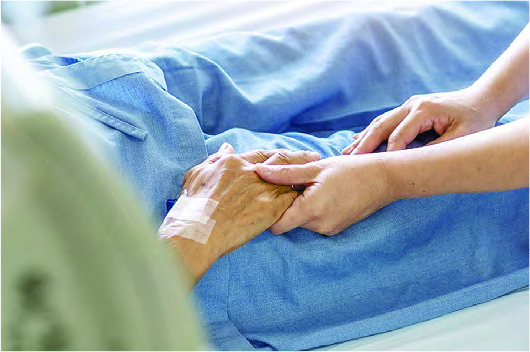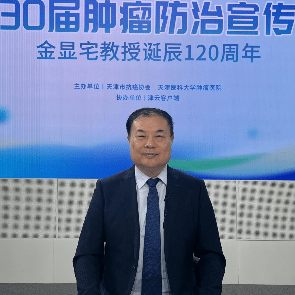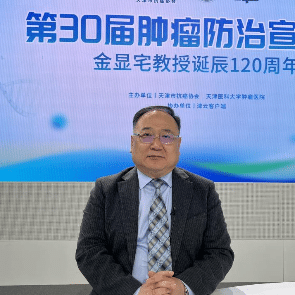[Wanqingyi Care]My health, my rights, customized medical methods in the last stage of life
[ad_1]
Text◆Chen Yingle (Clinical Assistant Professor, Department of Clinical Oncology, University of Hong Kong)
Last week, April 7 (Sunday), was the “World Health Day” designated by the World Health Organization every year.
This year’s theme is “My health, my right”, and the goal is to hope that people in every corner of the world can enjoy high-quality medical care and education.
Quality care, including autonomy in the final stages of life.
(Hong Kong News) As long as you are alive, you will have to face death one day. In the last stage of life, lying on the hospital bed, can you really make your own decisions?
Mr. Zhang, 58, suffered from terminal lung cancer. The cancer cells had spread to the lung membrane and bones. He had received chemotherapy and immunotherapy but was still out of control. Every time he came to the hospital for follow-up consultation, Mr. Zhang was alone. He understood his situation and decided to receive palliative care, hoping to die peacefully.
But two weeks ago, because the tumor spread to his brain, he became delirious and needed to be hospitalized for treatment. During his hospitalization, he suffered from aspiration pneumonia and required high-dose oxygen. The doctor proposed a “do not resuscitate” method to Mr. Zhang’s family and prohibited him from eating by mouth. However, the family disagreed and believed that Mr. Zhang was still very young and needed more aggressive treatment. They even suggested using a throat tube for feeding or intravenous feeding. Inject nutritional solution to enhance the patient’s resistance.
After several interviews and explanations with Mr. Zhang’s family, the medical staff stated Mr. Zhang’s wishes, and finally the family agreed to accept it.

Caregiver and medical staff conflict
We encounter cases similar to Mr. Zhang’s from time to time. Although Hong Kong culture has become very Westernized, and the public’s discussion of death is not as taboo as before, the elderly or those with serious illnesses may not be able to make independent arrangements when facing death, and caregivers and medical staff may also have conflicts over care arrangements and end-of-life arrangements. It makes everyone physically and mentally exhausted.

1.After signing the “Do Not Resuscitate” document, does it mean that medical staff have given up on the patient?
Many family members and caregivers worry about whether the medical staff will give up on the patient when they hear the doctor say not to perform CPR.
It should be understood that not performing cardiopulmonary resuscitation means not performing “extracardiac pressure” or artificial respiration when the patient’s heart cannot beat automatically and the lungs cannot breathe. It does not mean giving up other treatments. Not performing CPR ≠ giving up treatment. CPR is an invasive rescue treatment. If the cancer has reached the terminal stage and the organs have failed, the success rate of CPR is very low and the chance of effective treatment is extremely slim.
Moreover, cardiopulmonary resuscitation may cause serious complications, such as rib fractures, pneumothorax, etc., so performing cardiopulmonary resuscitation on dying patients may only prolong the death process and increase pain.
2.If patients can choose “euthanasia”, will the problem be solved?
First of all, euthanasia is illegal in Hong Kong. Euthanasia refers to a death request made by a patient or family to medical staff; not only does the patient refuse to receive basic care and palliative care, but the patient is also expected to use active or pharmaceutical methods to end the patient’s life.
Because euthanasia is easily abused and involves many ethical issues such as life autonomy and dignity, as well as religious and legal controversies, it is illegal in most countries in the world. Even in several countries that have legalized euthanasia (such as Belgium, the Netherlands, Switzerland, and Canada), it cannot be done lightly. It requires detailed analysis and understanding by doctors before it can be carried out.
3.When the disease reaches the terminal stage, is there any choice?
When the disease reaches the terminal stage, patients, caregivers and medical staff need to understand the usefulness, effects and side effects of active treatment, as well as the difference from palliative care. They should also understand the life expectancy, care arrangements, and the choice of hospital, institutional or nursing home. Death at home, etc., these all require time and good communication.
a legally binding document
Recent news reported that the “Advance Decision-Making of Life-Sustaining Treatment Bill” was being considered by the Legislative Council, which includes “Advance Care Plan” and “Advance Medical Directive”. The most important thing in the “preset care plan” is good communication. Patients with serious diseases can discuss medical and care plans with their family members and medical staff while they still have the ability to make decisions. The three parties have reached a consensus. When the patient loses the ability to make decisions, family members and medical staff can Patient wishes and values select treatment and care.
An “advance directive” is a legally binding document that records the patient’s wishes in writing, such as not accepting cardiopulmonary resuscitation, artificial nutrition or fluid feeding, etc. The “Advance Medical Directive” must be signed by the patient and two witnesses, one of whom must be a registered medical practitioner in Hong Kong, and neither witness shall obtain any interest in the patient’s estate. Therefore, both “Advance Care Plan” and “Advance Medical Directive” are patient-centered and emphasize the patient’s dominance.
You have to face death once in life
However, “advance directives” are not popular in Hong Kong. Studies have pointed out that only about 0.5% of the Hong Kong population has signed them before death. This may be because the public does not know much about it, or the “advance care plan” has not been related to extensive promotion. We look forward to more cooperation between the government and the community in the future so that the public can better understand the discussions and benefits involved.
Death must be faced once in life.
Be honest with your family and medical staff about your wishes, and let yourself take charge of the care arrangements.
[ad_2]
Source link

![[Love Wants Sexual Happiness Series 358]Find the culprit and overcome psychogenic erectile dysfunction. Don’t let pressure affect your sexual happiness.](https://chinathenews.com/wp-content/uploads/2024/04/171111-780x420.jpg)

![[Kidney Transplantation Special Topic]The survival rate of transplanted kidneys is high without dialysis treatment three times a week](https://chinathenews.com/wp-content/uploads/2024/04/1311-780x420.jpg)




